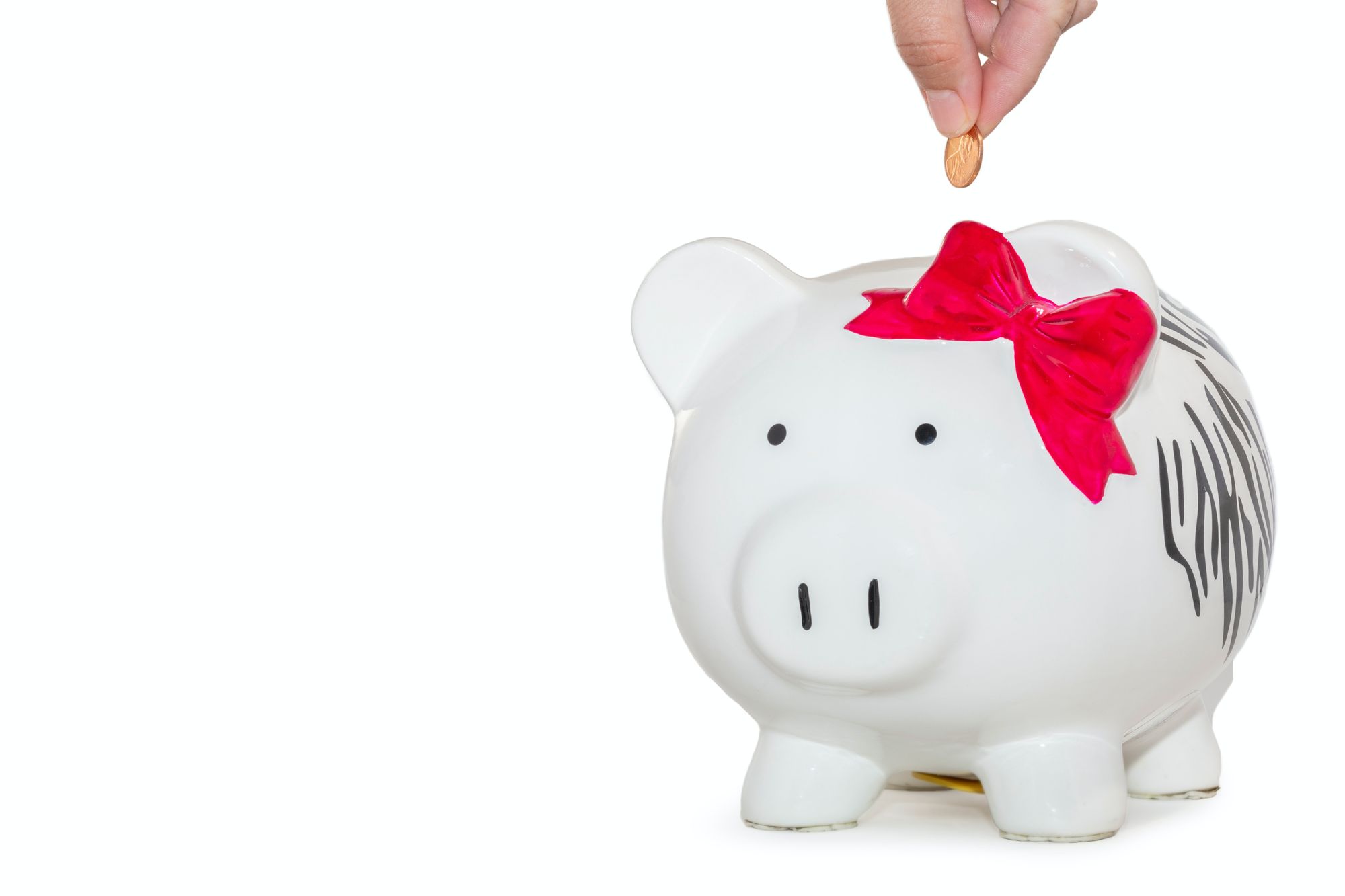
The Path to Financial Independence Made Easy
Have you ever heard the term financial independence? Some of the basic principles include retiring early, living off passive income, and not worrying about your next dollar. However exciting or unbelievable it seems, getting there is doable. Here is a guide that will help you get started today.
Have you ever heard the term ‘financial independence’ or one of its derivatives (financial freedom, FIRE [financial independence, retire early])? Some of the basic principles include retiring early, working only because you want to, living off passive income, and not worrying about your next dollar. However exciting or unbelievable that lifestyle may seem, getting there is an involved, but doable, process. How exactly do you become financially independent? Here is a guide that will help you get started today so you can live the life of your dreams tomorrow.
Setting The Stage: Income vs. Wealth
Many people are hyper-focused on getting the biggest salary possible. While that is important, you should understand the difference between income and wealth. Income is the money you earn based on your salary, but that alone does nothing to build your wealth, which is an “abundance of valuable material possessions or resources.” Wealth is so important because by building it, you can increase your valuable assets, which allows you to slowly increase the money you make off of this wealth.
Of course, this assumes the possessions you buy are ones which increase your wealth, so it is important to understand the difference between an asset and a liability. An asset is a possession which increases your net worth, or otherwise makes a positive impact on your balance sheet. A liability is a possession which acts as an expense, having a negative impact on your balance sheet. It is therefore critically important to spend any excess income you may have on wealth-generating assets. A car, for example, is not an asset, but rather a liability, because it is expensive and depreciates in value over time. A house, however, may be leagues more expensive than a car, but it is an asset because it appreciates, or increases in value, over time. Additionally, homes have the potential to actually earn income passively on your behalf. If you want to understand this in far more detail, I suggest reading Rich Dad Poor Dad.

Living Within (and Below) Your Means
It’s easy to fall into the trap that capitalism sets: you start earning more money, and so you want to spend it on flashy cars, vacations, or new shoes. While this is extremely tempting, remember that such purchases are liabilities, not assets. It is critical to live within, and preferably below, your means so that you can take as big a portion of your income as you can and put it into savings. By growing your savings slowly over time, your wealth increases, and you can put that considerably larger sum into an expensive asset that is extremely valuable (think: real estate) for building your financial independence. If you find that you get a promotion or a cash bonus, instead of burning through that surplus of money that you once lived without, take it and put it into savings immediately. Remember that your long term goal is financial independence. Beyond this large goal, however, it is important to break down the financial independence journey into smaller, more attainable goals.
Goal Setting
Before you really get started, consider your “why." The tangible, gut feeling of an emotion is far more pervasive and motivating than a “what”. Your "what" is financial independence, but think about your "why." Here are some examples:
- I want to be financially free so that I no longer have to worry about if I can afford to keep the lights on.
- I want to be financially free so I can spend more time with my kids and watch them grow up.
- I want to be financially free so that I never have to spend another day with my insufferable boss.
Once you establish your why, ask yourself where you want to be in 5, 10, or 15 years. Then start building this out with tangible, small goals. The first step may be taking $200 per month and putting it into savings. Alternatively, it may be cutting back the frequency at which you eat out from 3x per week to 1x per week. These small changes add up, and if you start accumulating wealth through them, you’ll be well on your way to financial independence.
Related: 7 Ways to Make Cash on the Side
Budgeting
Now that you have some goals in mind, consider what the math looks like given your current income and expenses. Make a budget and start getting creative. What are some options?
- House hacking: This is a strategy where you purchase a property, live in it, and rent out the extra rooms or units. House hacking requires only 3.5-5% down on a loan, rather than the typical 20%, and requires that the property be your primary residence for at least one year. Note, however, that this only applies on properties that range from 1-4 units. Also keep in mind that you will have to pay private mortgage insurance (PMI) until you have 20% equity. Given the much lower down payment when you house hack, it’s easy to get started even if you don’t yet have a lot of wealth accumulated. After one year has passed, you can rent out your portion of the space and repeat the process. For more information on FHA loans, click here. The goal when you start house hacking isn’t necessarily to make a profit, but rather to reduce your housing expense while accumulating equity in a property. Housing is the average American’s biggest expense, and so if you can reduce it or even eliminate it (and then put that money into savings, not spend it!), you’re well on your way to accumulating wealth and achieving financial freedom.
- Eliminate recurring expenses: Monthly or yearly recurring expenses add up fast. From your phone bill to your Netflix subscriptions, being vigilant about what companies bill you on a recurring basis can help eliminate excess expenses. Consider cutting back on your subscription services or finding joint subscriptions (i.e. Spotify bundles their premium streaming services with Hulu) to help save money. This money would be far better spent being, well, not spent! Save it instead.
- Eating out: This also adds up fast. Consider packing lunch when you go to work and inviting your friends over rather than going out. It’s little changes like these that will really help line your pockets over time.

Make Smart Investments
If you look at the portfolios of wealthy individuals, many of them are real estate investors. Real estate is incredibly lucrative for a few reasons, but here are some of the more important ones:
- Capital gains: Any profit earned from the sale of a property that is held for longer than a year before being sold is considered a long-term capital gain. This means that the taxes are much more favorable, and up to $500,000 (yes, half a million) of profit on that property is tax free. This is why some developers will live in a property they are renovating for two of the last five years, saving on rent and ensuring that at least $250,000 (if you are single) and up to $500,000 (if you are not single) of profit made is tax free.
- 1031 exchange: A 1031 exchange is when an investor swaps one piece of real estate for another of equal or greater value. By doing this, an investor can use profits off the original property and put them directly into another, possibly bigger and more profitable, property… all of which is extremely low tax or even tax free. Rinse and repeat! Now you’re slowly accumulating wealth via assets and not paying taxes on it, because your wealth is tied up in real estate.
- Appreciation and passive rental income: The great thing about real estate is that its value increases over time. This is primarily what makes it an asset. Thus when you invest in real estate, not only are you making short term money off rental income, but you are gearing up for that property to appreciate across multiple years. In 1998 when my parents bought their house, it was around $400,000. Just last year in 2019, it was valued at $1.3 million. It appreciated by almost $1 million dollars in 20 years. Keep in mind, that 20-year-span included the biggest drop in home prices this country has ever seen, and they still managed to make an incredible return on their investment. Talk about a profit margin! Not only can you make short term rental cash flow from your property, but eventually when it comes time to sell, you will likely have made a profit based off appreciation alone.
Sit Back, Relax, and Enjoy Your Life
Now that you’ve saved up enough to make smart investments in real estate, you can watch as your investment properties provide you with passive income through rental income and appreciation, all while giving you considerable tax benefits.








